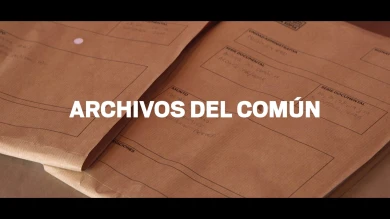-
Tuesday, 28 November 2023 – 5pm (Spain), 12pm (Argentina/Chile), 10am (Mexico) Nouvel Building, Auditorium 200 and online platform
Session 1
Tickets5pm Welcome
— Conducted by Sara Buraya Boned (Museo Reina Sofía) and Cynthia Schuffer (Southern Conceptualisms Network)5:15pm Fertile Ground for Archives of the Commons
Opening discussion table
— With Damián Cabrera, Fernanda Carvajal and Mela Dávila. Accompaniment: Mabel Tapia7:15pm The Glimmer of a Footprint without Archive. Experiences with the Yeguas del Apocalipsis Archive
Encounter
— With Fernanda Carvajal, Alejandro de la Fuente and Maria Fernanda Pizarro -
Wednesday, 29 November 2023 – 12pm (Spain) Sabatini Building, Garden
Session 2
TicketsSymbiotic Activation in the Garden of Mixtures
—Conducted by Alejandra Riera and the gardeners’ community (Iñigo Gómez Eguíluz, Beatriz Jordana, Fernando López, Miguel Ángel Novillo, among others) of the Garden of Mixtures Accompaniment: Maria Mallol y Magdalena Pérez-Balbi -
Wednesday, 29 November 2023 – 5pm (Spain), 12pm (Argentina/Chile), 10am (Mexico) Nouvel Building, Auditorium 200 and online platform
Session 3
Tickets5pm The Spore Dimension. Scattering Archive
Encounter
— With María Belén Correa, Alelí Mirelman, Marina Planas and Marga Sequeira. Accompaniment: Lucía Bianchi and María Mallol7pm The Symbiotic Dimension. Bio (Inter)dependencies for Archives
Sharing experiences of the workshop Something We Don’t Know We Know, but Know: Mycorrhiza, in symbiosis with the experience of Female Manifesto. De-patriarching the Archive
— With Alejandra Bolaños, Manuela Padrón, Elva Peniche and Adriana Reyes. Accompaniment: Sara Buraya Boned and Magdalena Perez Balbi -
Thursday, 30 November 2023 – 12pm (Spain) Nouvel Building, Library and Documentation Centre
Meeting Point: 15 minutes before the start of the session at the access point to the Library and Documentation Centre (Ronda de Atocha 2)Session 4
Tickets12pm, 12:30pm and 1pm There Are Reasons to Make Words Tremble Because Action Was There in Our Beginnings
Activation with archives and documentary holdings from the Museo Reina Sofía’s Library and Documentation Centre
—Accompaniment: CANDELA (Iria Gámez, Mónica Monmeneu and África Ruiz) -
Thursday, 30 November 2023 – 5pm (Spain), 12pm (Argentina/Chile), 10am (Mexico) Nouvel Building, Auditorium 200 and online platform
Session 5
Tickets5pm The Mycelial Dimension. Substrata and Modes of Inter-dependence in/from Archives
Round-table Discussion
— With Mariela Cantú, Alejandro de la Fuente, María Fernanda Pizarro and Hermenegildo Rojas Ramírez. Accompaniment: Elva Peniche and Magdalena Pérez Balbi7pm The Fermented Dimension. Metabolisms, Care and Forms of Propagation
Round-table Discussion
— With Alejandra R. Bolaños, Maddalena Fragnito and María Landeta. Accompaniment: África Ruiz Pino and Cynthia ShufferLanguage: Spanish and Italian with simultaneous interpreting

Held on 28, 29, 30 Nov 2023
Organised jointly by the Museo Reina Sofía and the Southern Conceptualisms Network, Archives of the Commons is a bi-annual encounter which arises from the need to urgently initiate a dialogue between spaces where memories gestate and are cared for. The aim is to open up opportunities for exchange and reflection around archive practices understood as exercises of political, artistic and social commitment, as well as sounding out experiences that evoke future memories and pasts to come, exercises of imagination and critique which are key to articulating and constructing narratives of memory in resistance.
This fifth edition focuses its attentions on the fungi kingdom as a metaphor to approach practices about/with/on archive via collective rhythms, transfers and relations of reciprocity. Upon relating the fungi kingdom to processes that create, produce and disseminate archives, other understandings and sensitive perspectives are opened before a weakened and crisis-hit environment. The “fungi manoeuvre”, intersectional thinking straddling archives and fungi, enables us to test strategies of political and activist action through exercising the mycelial, spore-based, fermented, parasitic and symbiotic condition of fungi.
Archives of the Commons V. Fungi Memories looks to create distance from the academic model, exploring instead the landscape of archives and subverting their methods — thus, gardens, foodstuffs, thousand-year concoctions, incantations and memories appear. If a few decades back the metaphor of the rhizome allowed for, from a departure point of biological concepts, thought around forms of cultural production and drifts of ideas that escape modern linearity, then the fungi metaphor encourages us to delve into the indeterminate, into the networks that feed into and also activate one another and into the fermentation of emerging ideas and processes which settle in the thick layers of new forms of art-making.
Organised by
Museo Reina Sofía and Red Conceptualismos del Sur
Collaboration

Participants
Lucia Bianchi is a visual artist and teacher who studied at the Universidad Nacional de las Artes (UNA) in Buenos Aires, Argentina. She incorporates diverse contemporary poetics, particularly graphic art, into her practices, and carries out transdisciplinary work and is part of different art collectives. Since 2018, she has been part of the Southern Conceptualisms Network, where she coordinates the publications node of the pasafronteras publisher.
Alejandra R. Bolaños is an artist and archivist whose work sets out from the idea of moisture in archives from drawings, texts, performances and installations. She contributes as a researcher and cataloguer to different contemporary art collections, for instance Nudo, M68, Museo Tamayo and IAGO, and she is also a member of Despatriarcalizar el archive (De-patriarching the Archive), the co-founder of Bruma Laboratoria and the coordinator of CENDOC from the Museo Tamayo (2018).
Sara Buraya Boned is in charge of the Museo Reina Sofía’s Tentacular Museum area.
Damián Cabrera is a writer, art critic, researcher, cultural manager and curator. Since 2014, he has been a member of the Ediciones de la Ura collective and the Southern Conceptualisms Network and is also a member of the research group Estudos Culturais: Identidades e Cultura Política da Escola de Artes, Ciências e Humanidades from the University of São Paulo and the International Association of Art Critics in Paraguay. His work primarily centres on the fields of language, borders, literature, art, politics and culture.
CANDELA is a collective which carries out parasitic critical actions through the format of sound. It is made up of Iria Gámez, a researcher and architect, art historian and researcher Mónica Monmeneu, and África Ruiz, an artist and cultural manager. CANDELA’s practice is defined through the neologism “comensariado”, a parasitic typology that feeds off the host without causing it any type of detectable benefit or damage. They make public proposals developed in the spaces of other institutions, given the “comensaria” considers that public space is finite and its apparent omnipresence is, in reality, a thin and unstable porous surface, in the cavities of which habitable, emancipatory devices reside.
Mariela Cantú is a researcher, curator and producer who works in the arts and audiovisual media. She is also a creator in the Arca Video Argentino Project, a non-profit archive which preserves, researches and disseminates Argentinean experimental video work, with a physical space in La Plata and an online database. Since 2008, the archive’s main objective has been to facilitate, through its website, public, remote and free access to works and linked information. More recently, through the initiative, there has been a commitment to building a collaborative archive, where any user on the platform can incorporate works and information from the ARCA Video website..
Fernanda Carvajal is a lecturer at the Universidad de Buenos Aires who has run post-graduate courses at the Universidad Tres de Febrero and Universidad del Salvador. Since 2009, she has been a member of the Southern Conceptualisms Network and a researcher with Argentina’s National Scientific and Technical Research Council (CONICET). Her work intersects art, sexuality and politics and her interests revolve around queer and trans* intersectional and epistemological approaches situated from Latin America. Moreover, she has been part of curatorial groups for the following exhibitions in the Museo Reina Sofía: Losing the Human Form. A Seismic Image of the 1980s in Latin America (Museo Reina Sofía, 2012–2013) and The Kind Cruelty. León Ferrari, 100 Years (Museo Reina Sofía, 2020–2021). With Alejandro de la Fuente, she has worked on putting together the Archivo Yeguas del Apocalipsis and making it publicly accessible.
María Belén Correa is an artist, researcher and activist who works for the rights of sexual minorities, LGBTIQ+ people and, specifically, transexual people. With Claudia Pía Baudracco, she is the founder of Archivo de la Memoria Trans (The Archive of Trans Memory, AMT) from Argentina, a space which conserves a collection of over fifteen thousand documents spanning from the beginning of the twentieth century to the late 1990s, including photographic, film, sound, journalistic memories and ID cards, passports, letters, notes, police files, magazine articles and personal diaries, as well as being a meeting point for surviving comrades and their memories and images.
Mela Dávila Freire combines her professional career with research, writing, curation and translation, habitually in the sphere of art archives, artists’ publications, bibliographical collections and other related fields. She has worked with the archives of documenta (Kassel), the Deutsche Historische Museum (Berlin), the Lafuente Archive, Museo Reina Sofía, the Instituto Valenciano de Arte Moderno (IVAM), Biblioteca de las Artes (Guayaquil), Instituto Cervantes and other institutions and public and private collections. She was director of the Museo Reina Sofía’s Public Activities Department from 2015 to 2017 and was part of the steering group for Archives of the Commons II.
Maddalena Fragnito is a militant feminist researcher who works at the intersection of art, care policies and social movements. She is the creator of projects that include Radio Gabinetto, a sound history which interweaves the archive of the struggles of female workers at the Lebole textile factory in the early 1970s with the experiences of current workers — an investigation into toxicity at work, between physical and emotional exhaustion, and between the body and production technology.
Jardín de las Mixturas the Garden of Mixtures, is a testing-place and open and shifting collective initiated with the artist Alejandra Riera and made up of people involved with the Museo Reina Sofía and other spheres, as well as the beings that inhabit it. It is located in the Museo’s Sabatini Garden and aims to test forms of attention and co-existence among types of human and non-human presence which have a place there, posing questions such as: What relationships are interwoven in ensembles that undo the arranged and artificial separation between the so-called “human” and that which is considered “non-human”? How do we speak and support? What can be learned by paying attention to the place we are in? How is this place transformed and how does it transform us at the same time?
María Landeta executes performances, artistic actions and fermentation, investigating from the edges of art around a possible contamination between processes of fermentative decay and ways of life in discord with the hetero-norm. She is part of the collective ORGIE (the Group Organisation of Stage Research) and is currently finishing an MA in Contemporary Artistic Practices at the Universidad Nacional San Martín in Buenos Aires.
María Mallol is in charge of the Museo Reina Sofía’s Tentacular Museum area.
Manuela Pedrón Nicolau works in contemporary art curating and education, more specifically in areas related to artistic research and forms of narration which, from this sphere, explore the social and the political. She is part of the Catenaria collective and, with Jaime González Cela, has curated exhibitions and directed programmes in an array of institutions. She has also held residencies at Spain’s Royal Academy in Rome, Hangar Barcelona, Centro Huarte in Pamplona and DAAD Berlin.
Elva Peniche Montfort is a researcher, teacher, archivist and curator. Her interests centre around the crossovers of artistic and archival practices, and she holds a degree in History and is a teacher and candidate on the PhD in Art History at the Universidad Nacional Autónoma de México (UNAM). From 2015 to 2021, she worked in the Arkheia Documentation Centre at UNAM’s Museo Universitario de Arte Contemporáneo de México (MUAC) and currently collaborates with the National Centre of Research, Documentation and Information in the Plastic Arts from the National Institute of Fine Arts and Literature in Mexico City. She is also a member of the Southern Conceptualisms Network and the seminar De-patriarching the Archive.
Magdalena Pérez Balbi is a lecturer in the Arts Department at the Universidad Nacional de La Plata, a teacher-researcher at the Institute of Argentinian and American Art History (IHAAA/FDA/UNLP) and a member of the Study Group on Art, Culture and Politics in Recent Argentina from the Gino Germani Research Institute (FSOC/UBA). She was also a contributor to the Vigo Experimental Art Centre (archive of the artist E. A. Vigo) from 2005 to 2013. In her work, she investigates the crossovers between art and politics in Argentina, specifically in artistic activism in the city of La Plata. Furthermore, she has been a member of the Southern Conceptualisms Network since 2014, coordinating the Archives node in the 2022–23 academic year. She is the mother of Camilo and Lucio.
Marina Planas Antich is an artist and the director of Casa Planas, a centre of contemporary research and creation in which she has set up, with Alelí Mirelman, the Art Investigation Programme, which analyses and creates the contemporary image via Planas Archive residencies. This archive is one of the foremost photographic archives on tourism, with a collection in excess of three million images produced between the 1940s and 1990s, in addition to containing a major collection of turn-of-the-century photographic and film techniques linked to landscape, tourism and photography.
Networks and Links of Latin American Art is an online platform which gathers different experiences of exhibiting, disseminating and accessing artistic materials — content from collections, archives, repositories, documentation centres and Latin American institutions — with the aim of generating simultaneous connections between each of these entry points and thereby delving deeper into the potential of digital media to share Latin American works and documents. Its members include María Fernanda Pizarro, a graphic and multimedia designer and cultural manager, and currently the director of the D21 Art Projects (Providencia, Chile), and Alejandro de la Fuente, a researcher who works on digitising, processing and disseminating artists’ archives such as Yeguas del Apocalipsis Víctor Hugo Codocedo and Hernán Parada and Juan Castillo.
Adriana Reyes Rosón is an anthropologist and creator in the sphere of live arts. She holds an MA in feminist studies, and has specialised in sexualities and diversity and trained with different female creatives between Spain, Brazil and Portugal. Notable are her interests in the social sciences, live arts, transfeminist studies, spirituality and forms of plant life, diverse spheres which also entail fields of pleasure and action in her daily practice.
Alejandra Riera writes and weaves images and texts, moments devoted to the presence of plants and collectiveness, and other more solitary times of poetic writing. Starting from lived experience, her writings, films and gestures are a place-undertaking which opens pathways to worlds with fragile plant trajectories found in a there-where to express themselves and thus uplift and encourage possible transformations in the damaged environment in which we live. She is a researcher-artist and teacher of film and documentary practices at the Bourges Advanced National School of Art, and currently teaches transversal and documentary practices and poetics at the Paris-Cergy National School of Art in France.
Hermenegildo Rojas Ramírez is a documentary film director and producer with a career spanning more than twenty years in Indigenous communities in the Ayuuk (Mixe) region in the State of Oaxaca (Mexico). He has participated in the community organisation Tv Tamix, a project under the principles of Exta'n and with symbolisms, media and spaces of encounter, which safeguards the memory of the Ayuujk (Mixe) people. With over five hundred video cassettes in VHS, Hi8, MiniDV and Betacam formats, the project in its entirety reflects the most significant cultural manifestations in the community since 1989, such as patronal celebrations, tequios (collective tasks or work), traditional music and sporting events.
África Ruiz Pino is an artist and cultural manager who explores the crossovers between both disciplines. Her interests focus on research methodologies of art-making, transfeminist practices and backing and advocating militancy as a social and political act. She is the co-founder of the Candela Collective and since 2021 has been the beneficiary of a training grant to coordinate Museo en Red activities, within the Museo Reina Sofía’s Public Activities Department.
Marga Sequeira is a researcher and teacher. She works to construct “anarchive” archives linked to LGTBIQ+ memory in Central America and to spaces of artistic training, such as the Mirar al Centro (Looking into the Centre) Archive, which gathers histories, methodologies and memories of three artistic training spaces in Central America: the Experimental Art School in Honduras, the Creative Centre of Artistic Teaching in Guatemala and the EspIRA project (Space for Artistic Research and Reflection) in Nicaragua. Artístico Pedagógico en Guatemala y el proyecto EspIRA (Espacio para la Investigación y Reflexión Artística) en Nicaragua.
Cynthia Shuffer is a researcher, teacher and photographer who holds a PhD in American Studies from the Institute of Advanced Studies at the Universidad de Santiago de Chile (IDEA-USACH). She is the co-founder of Rufián Revista, a coordinator of the Southern Conceptualisms Network and a coordinator of the Laura Rodig Brigade from the 8M Feminist Coordinator of Chile.
Mabel Tapia is a contemporary art researcher. Between 2020 and 2023 she was the Museo Reina Sofía’s deputy artistic director, working previously from the Museo as coordinator of the L’Internationale museum confederation. In France, she co-directed, over a three-year period, the post-graduate programme of artistic research Document et art contemporain, carried out at the École européenne supérieure de l'image (ÉESI) and École nationale supérieure d'art (ENSA) in Bourges. She has also been a coordinator of the Southern Conceptualisms Network, a platform of which she is also a member.
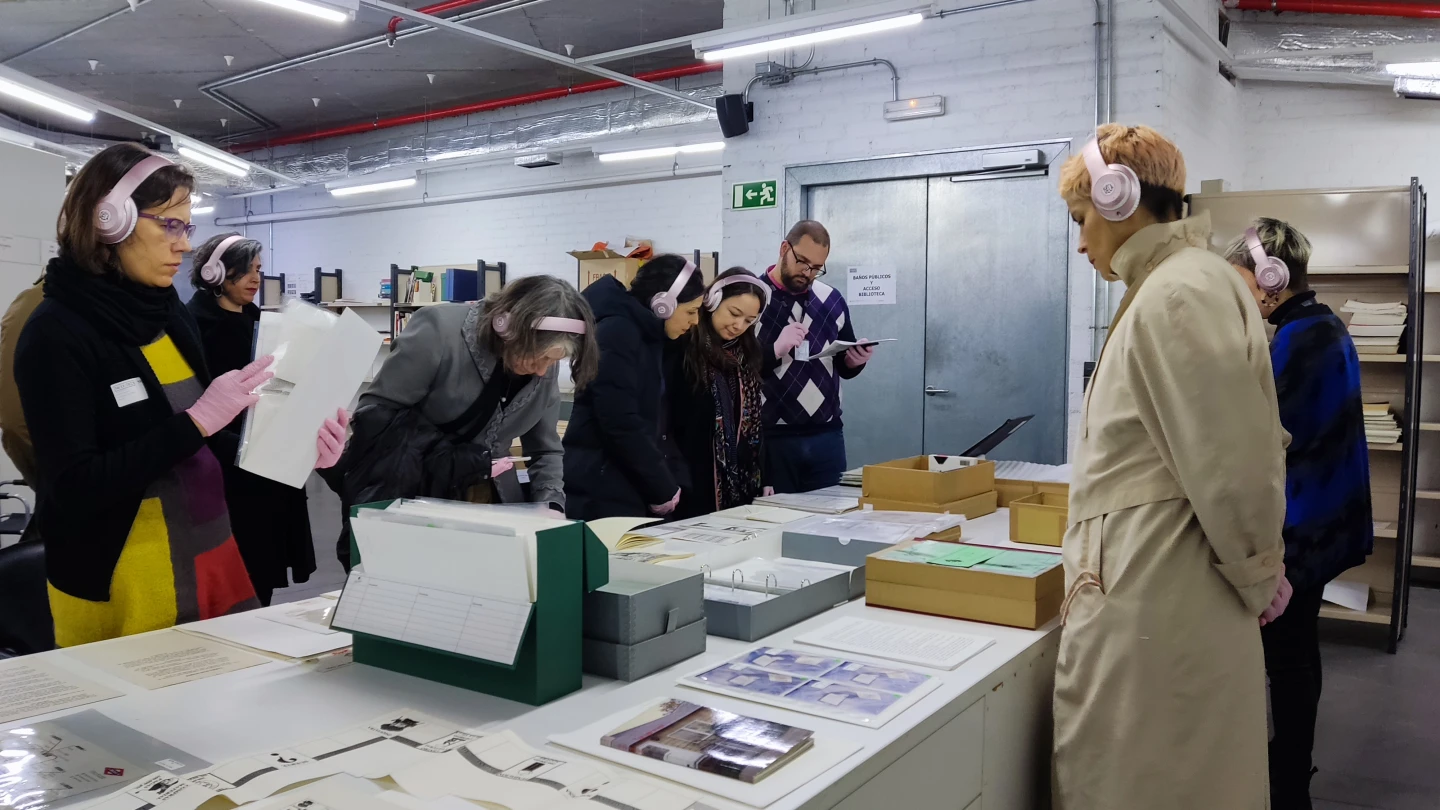
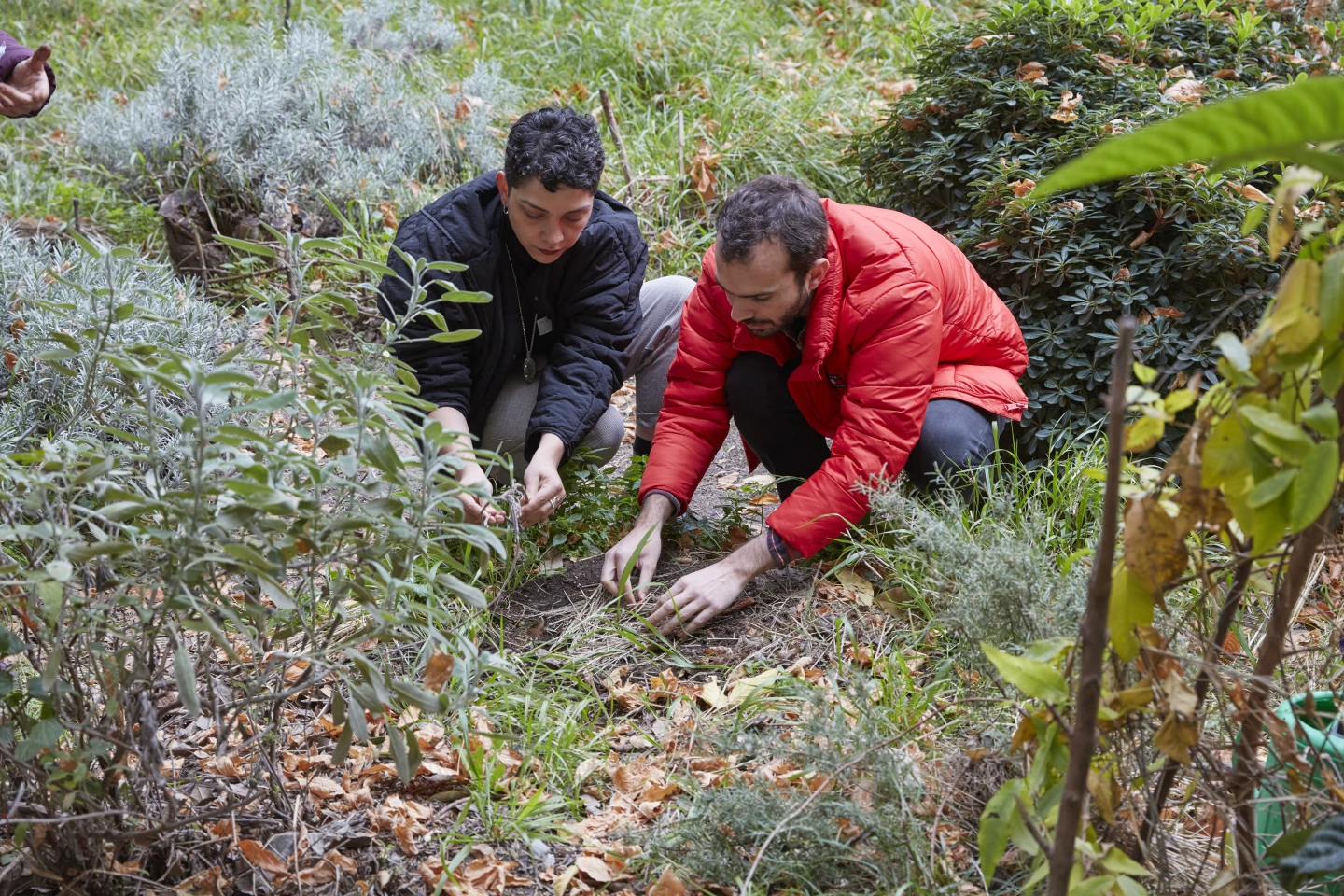
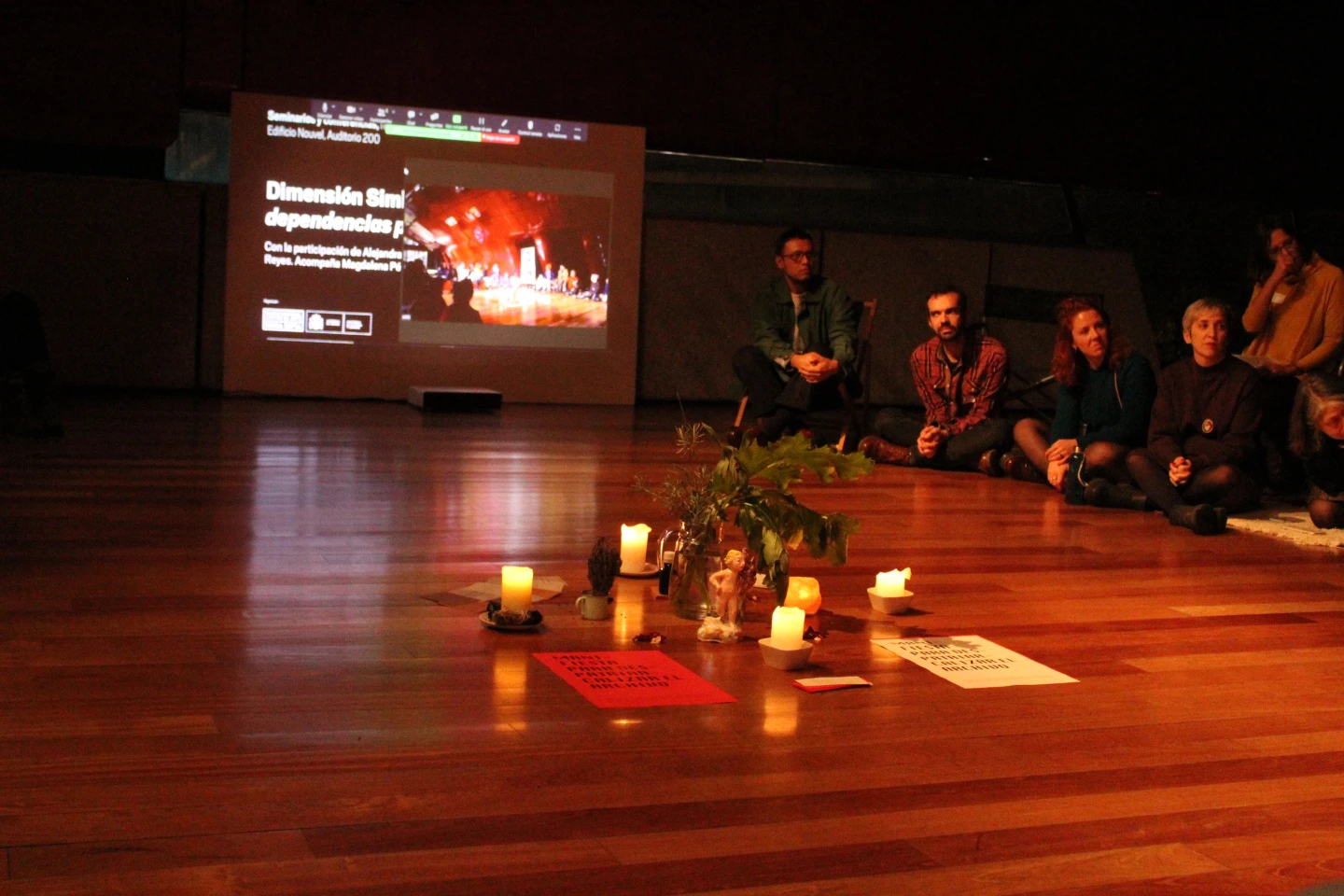
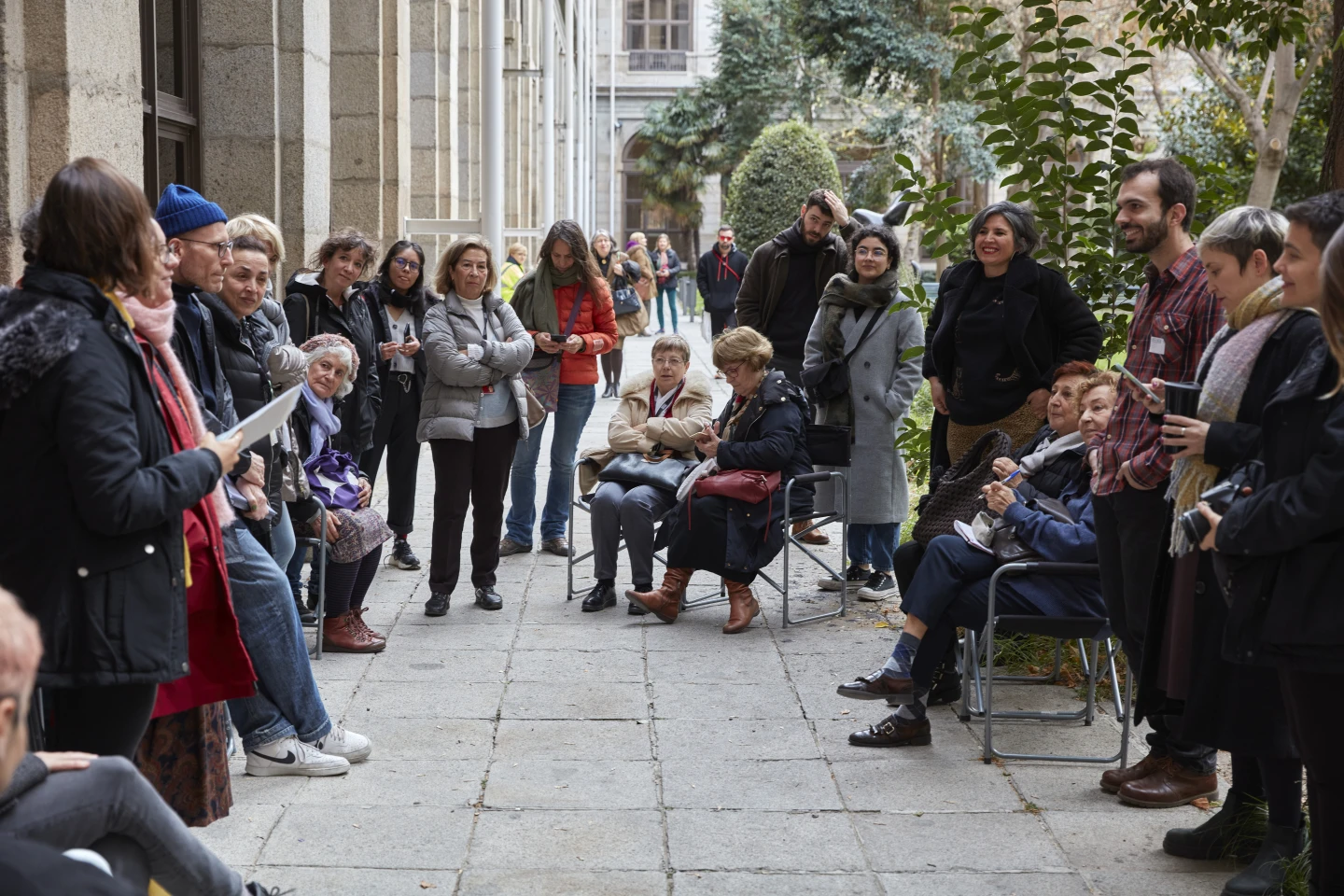
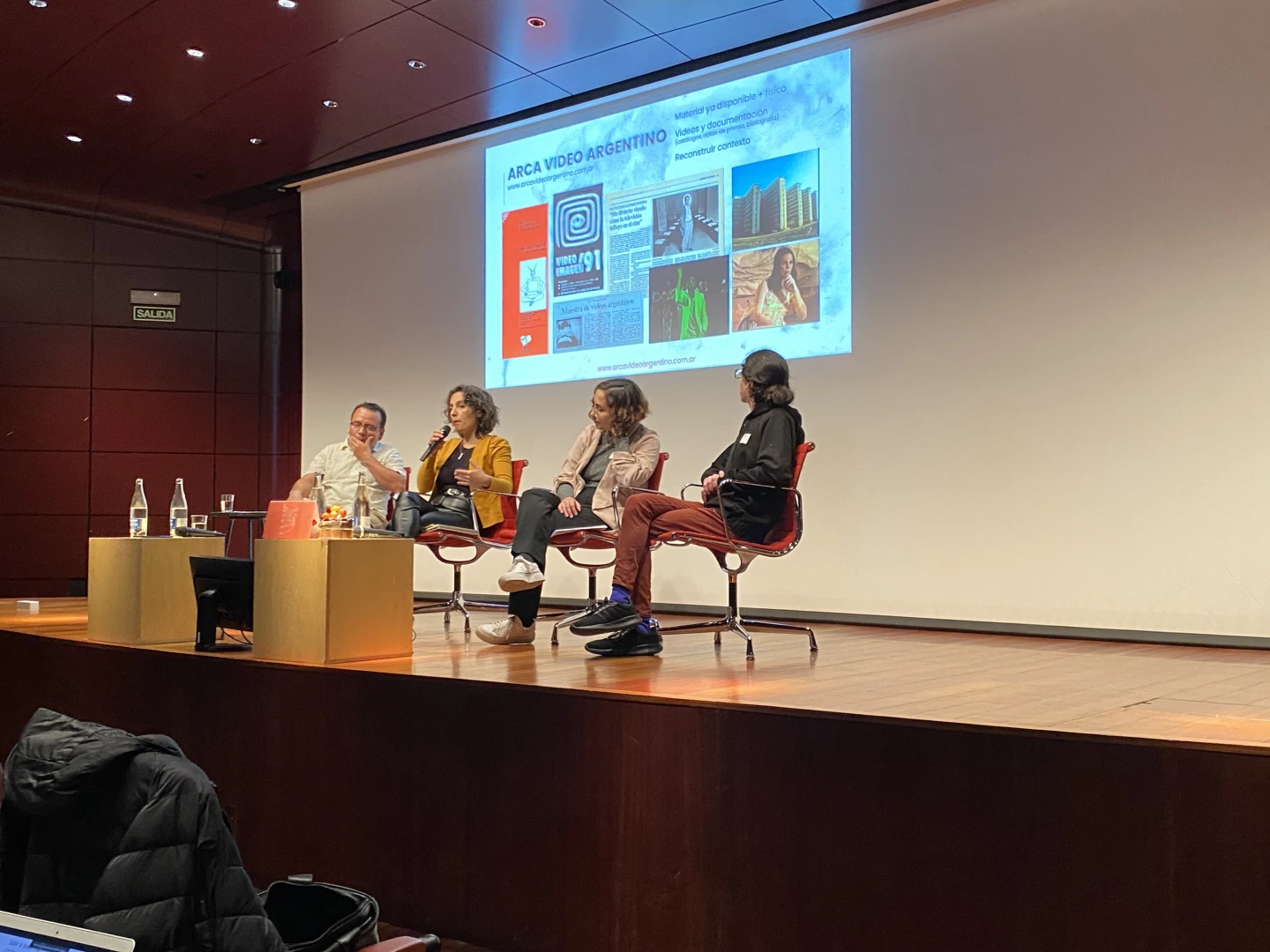
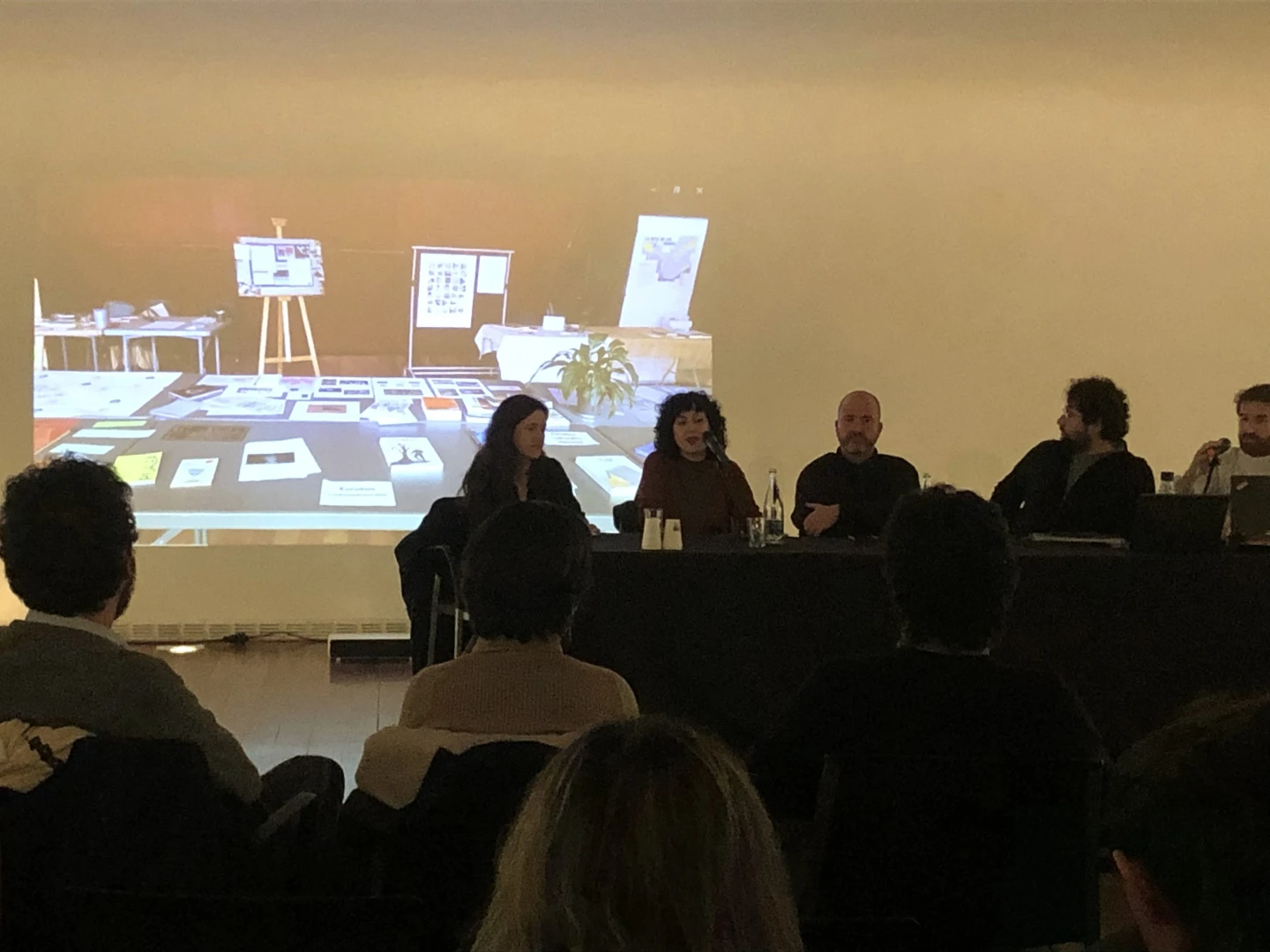
Más actividades
![Tracey Rose, The Black Sun Black Star and Moon [La luna estrella negro y negro sol], 2014.](https://recursos.museoreinasofia.es/styles/small_landscape/public/Obra/AD07091_2.jpg.webp)
On Black Study: Towards a Black Poethics of Contamination
Monday 27, Tuesday 28 and Wednesday 29 of April, 2026 – 16:00 h
The seminar On Black Study: Towards a Black Poethics of Contamination proposes Black Study as a critical and methodological practice that has emerged in and against racial capitalism, colonial modernity and institutional capture. Framed through what the invited researcher and practitioner Ishy Pryce-Parchment terms a Black poethics of contamination, the seminar considers what it might mean to think Blackness (and therefore Black Study) as contagious, diffuse and spreadable matter. To do so, it enacts a constellation of diasporic methodologies and black aesthetic practices that harbor “contamination” -ideas that travel through texts, geographies, bodies and histories- as a method and as a condition.
If Blackness enters Western modernity from the position of the Middle Passage and its afterlives, it also names a condition from which alternative modes of being, knowing and relating are continually forged. From within this errant boundarylessness, Black creative-intellectual practice unfolds as what might be called a history of touches: transmissions, residues and socialities that unsettle the fantasy of pure or self-contained knowledge.
Situated within Black radical aesthetics, Black feminist theory and diasporic poetics, the seminar traces a genealogy of Black Study not as an object of analysis but as methodological propositions that continue to shape contemporary aesthetic and political life. Against mastery as the horizon of study, the group shifts attention from what we know to how we know. It foregrounds creative Black methodological practices—fahima ife’s anindex (via Fred Moten), Katherine McKittrick’s expansive use of the footnote, citation as relational and loving labour, the aesthetics of Black miscellanea, and Christina Sharpe’s practices of annotation—as procedures that disorganise dominant regimes of knowledge. In this sense, Black Study is approached not as a discrete academic field but as a feel for knowing and knowledge: a constellation of insurgent practices—reading, gathering, listening, annotating, refusing, world-making—that operate both within and beyond the university.
The study sessions propose to experiment with form in order to embrace how ‘black people have always used interdisciplinary methodologies to explain, explore, and story the world.’ Through engagements with thinkers and practitioners such as Katherine McKittrick, C.L.R. James, Sylvia Wynter, Christina Sharpe, Fred Moten, Tina Campt, Hilton Als, John Akomfrah, fahima ife and Dionne Brand, we ask: What might it mean to study together, incompletely and without recourse to individuation? How might aesthetic practice function as a poethical intervention in the ongoing work of what Sylvia Wynter calls the practice of doing humanness?

Intergenerationality
Thursday, 9 April 2026 – 5:30pm
This series is organised by equipoMotor, a group of teenagers, young people and older people who have participated in the Museo Reina Sofía’s previous community education projects, and is structured around four themed blocks that pivot on the monstrous.
The third session gazes at film as a place from which to dismantle the idea of one sole history and one sole time. From a decolonial and queer perspective, it explores films which break the straight line of past-present-future, which mix memories, slow progress and leave space for rhythms which customarily make no room for official accounts. Here the images open cracks through which bodies, voices and affects appear, disrupting archive and questioning who narrates, and from where and for whom. The proposal is at once simple and ambitious: use film to imagine other modes of remembering, belonging and projecting futures we have not yet been able to live.

Remedios Zafra
Thursday March 19, 2026 - 19:00 h
The José Luis Brea Chair, dedicated to reflecting on the image and the epistemology of visuality in contemporary culture, opens its program with an inaugural lecture by essayist and thinker Remedios Zafra.
“That the contemporary antifeminist upsurge is constructed as an anti-intellectual drive is no coincidence; the two feed into one another. To advance a reactionary discourse that defends inequality, it is necessary to challenge gender studies and gender-equality policies, but also to devalue the very foundations of knowledge in which these have been most intensely developed over recent decades—while also undermining their institutional support: universities, art and research centers, and academic culture.
Feminism has been deeply linked to the affirmation of the most committed humanist thought. Periods of enlightenment and moments of transition toward more just social forms—sustained by education—have been when feminist demands have emerged most strongly. Awareness and achievements in equality increase when education plays a leading social role; thus, devaluing intellectual work also contributes to harming feminism, and vice versa, insofar as the bond between knowledge and feminism is not only conceptual and historical, but also intimate and political.
Today, antifeminism is used globally as the symbolic adhesive of far-right movements, in parallel with the devaluation of forms of knowledge emerging from the university and from science—mistreated by hoaxes and disinformation on social networks and through the spectacularization of life mediated by screens. These are consequences bound up with the primacy of a scopic value that for some time has been denigrating thought and positioning what is most seen as what is most valuable within the normalized mediation of technology. This inertia coexists with techno-libertarian proclamations that reactivate a patriarchy that uses the resentment of many men as a seductive and cohesive force to preserve and inflame privileges in the new world as techno-scenario.
This lecture will address this epochal context, delving into the synchronicity of these upsurges through an additional parallel between forms of patriarchal domination and techno-labor domination. A parallel in which feminism and intellectual work are both being harmed, while also sending signals that in both lie emancipatory responses to today’s reactionary turns and the neutralization of critique. This consonance would also speak to how the perverse patriarchal basis that turns women into sustainers of their own subordination finds its equivalent in the encouraged self-exploitation of cultural workers; in the legitimation of affective capital and symbolic capital as sufficient forms of payment; in the blurring of boundaries between life and work and in domestic isolation; or in the pressure to please and comply as an extended patriarchal form—today linked to the feigned enthusiasm of precarious workers, but also to technological adulation. In response to possible resistance and intellectual action, patriarchy has associated feminists with a future foretold as unhappy for them, equating “thought and consciousness” with unhappiness—where these have in fact been (and continue to be) levers of autonomy and emancipation.”
— Remedios Zafra

ARCO2045. The Future, for Now
Saturday 7, March 2026 - 9:30pm
The future, its unstable and subjective nature, and its possible scenarios are the conceptual focus of ARCOmadrid 2026. A vision of the future linked to recent memory, a flash of insight into a double-edged sword. This year's edition, as in the previous two, will once again hold its closing party at the Reina Sofia Museum. This time, the star of the show is Carles Congost (Olot, Girona, 1970), one of the artists featured in the new presentation of the Collections recently inaugurated on the 4th floor of the Sabatini Building.
Carles Congost, with his ironic and timeless gaze, is responsible for setting the tone for this imperfect future, with a DJ session accompanied by some of his works in the Cloister on the first floor of the Sabatini Building of the Museo on the night of Saturday 7 March.

27th Contemporary Art Conservation Conference
Wednesday, 4, and Thursday, 5 March 2026
The 27th Contemporary Art Conservation Conference, organised by the Museo Reina Sofía’s Department of Conservation and Restoration, with the sponsorship of the Mapfre Foundation, is held on 4 and 5 March 2026. This international encounter sets out to share and debate experience and research, open new channels of study and reflect on conservation and the professional practice of restorers.
This edition will be held with in-person and online attendance formats, occurring simultaneously, via twenty-minute interventions followed by a five-minute Q&A.
